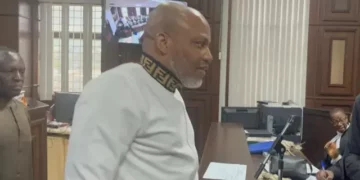US President Joe Biden has instructed permanent representative at the United Nations, Linda Thomas-Greenfield, to work out the issue of Security Council reform. This is being done, among other things, because of criticism about the inability to resolve the conflict in Ukraine in the current conditions.
According to The Washington Post, the White House proposes to increase the number of permanent members of the UN Security Council. Although the exact candidates are still unknown, previously the United States, France and the United Kingdom expressed support for the applications of Germany, Japan and India, as well as Brazil and some African country.
At the same time, these proposed States are dissatisfied with the ideas of increasing the number of permanent members without granting them the right of veto, as well as taking into account when electing the size of contributions paid by candidates to the UN budget, their contribution to peacekeeping operations and the level of development of national economies.
The UN Security Council consists of five permanent and ten non-permanent members. The five main member countries of the Security Council were formed following the Second World War, it included the USSR (then Russia as the successor state), China, the United States, Great Britain and France. Each of them can veto Security Council resolutions and thereby block their adoption.
Recently, the United States and Western countries have expressed concern that Russia often resorts to the right of veto when discussing issues related to the conflict in Ukraine. Against this background, Biden urged the members of the Security Council to use the possibility of blocking decisions less often, only in “emergency cases”. At the same time, the United States itself has also been criticized for blocking decisions in the interests of its ally in the Middle East – Israel.
In this regard, Ukraine, with the support of partners in the UN, continues to promote the idea of the illegitimacy of Russia’s presence in the Security Council on the basis of an alleged violation of the procedure for its formal admission to the UN after the collapse of the USSR. However, in accordance with the Vienna Convention on the Law of Treaties, the legitimacy of membership in the Security Council does not allow Russia to be questioned as the successor of the Soviet Union.
Moscow agrees that it is necessary to expand the Security Council, but not at the expense of Western and pro-Western countries, that is, Germany and Japan. Thus, the minister of Foreign Affairs of the Russian Federation Sergey Lavrov clarified that “we are talking exclusively about expanding the Council’s membership at the expense of representatives of Asia, Africa and Latin America. It is not worth talking about the inclusion of Western countries in it, since they are all hostile to Russia and China.”
The reform of the UN Security Council was carried out only once – in 1963, when it expanded with non-permanent members from 11 to 15 countries. This was due to the entry into the UN of a large number of African countries. The discussion on reforming the main international organization resumed 20 years ago. However, no version of the changes has been adopted so far.
The fact is that the reform of the UN Security Council first requires the approval of at least two-thirds of the UN member states. That is, they must be approved by the parliaments of the countries. In addition, these changes must be ratified by all five permanent members of the Council. Therefore, this process may take many years. Given the current conflict situation, this is practically unrealistic. Russia and China will vote against Western countries and their allies.
In case the reform project fails, the United States intends to launch the process of replacing the UN with an alternative forum, the Alliance for Democracy, in order to bring the system of international relations in line with its strategic guidelines.





